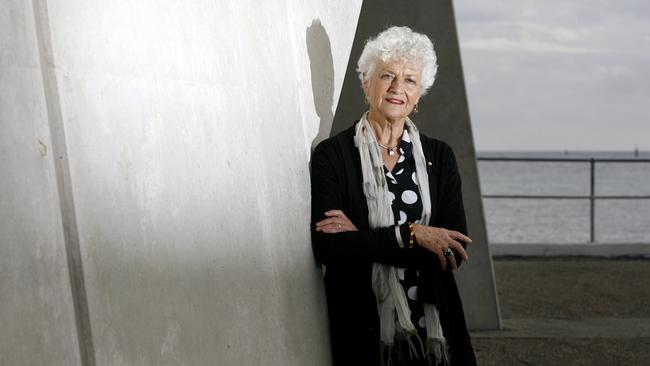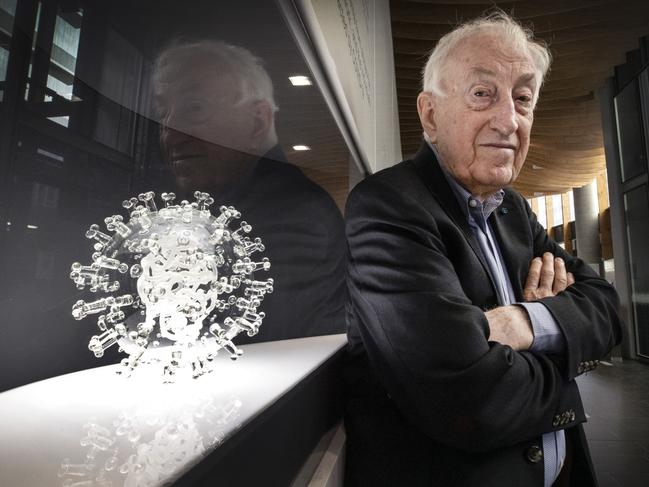Academics Fiona Stanley, Peter Doherty call for NT fracking ban as announcement imminent
The open letter signed by almost 100 scientists and academics comes as the government is expected to make an announcement on the future of fracking in the NT on Wednesday.

Northern Territory
Don't miss out on the headlines from Northern Territory. Followed categories will be added to My News.
Almost 100 scientists and academics have signed an open letter calling on the NT government to ban fracking, as the government prepares to release a report on its implementation plan for the industry on Wednesday morning.
The letter — whose signatories include Nobel Laureate Peter Doherty, former Australian of the year Fiona Stanley and former federal Opposition Leader John Hewson — is published in Wednesday’s NT News as well as other prominent newspapers in Melbourne and Sydney.
Its authors claim the Territory government has “failed to keep its commitment” to meet a recommendation that a ban on fracking should only be lifted if there would be no net increase in emissions as a result.
In 2018, the government committed to implementing all recommendations of a scientific inquiry into the industry chaired by Justice Rachel Pepper, including the “no net increase” provision.
Instead, the letter’s authors say hydraulic fracturing in the NT could result in up to 1.4 billion tonnes of emissions, with large scale gas production in the Beetaloo Basin adding 89 million tonnes of emissions to the atmosphere annually.
Former UN Intergovernmental Panel on Climate Change lead author Lesley Hughes said “the world simply cannot afford new fossil fuel developments” if internationally agreed targets were to be met.
“Gas development in the NT is completely incompatible with the need to ensure a safer climate for our children and grandchildren,” Prof Hughes said.

Former leader of the CSIRO’s ocean climate program John Church said the acceleration of the rate of sea level rise was “strongly affected by near term emissions”.
“If we are to avoid crossing thresholds leading to many metres of sea level rise impacting many tens to hundreds of million people, we need to urgently reduce fossil fuel emissions and open no new sources of fossil fuels,” Prof Church said.
“The acceleration of the rate of sea level rise is strongly affected by near term emissions, including the much stronger forcing from methane emissions.”
Prof Stanley said the United Nations Children’s Fund’s latest report card had ranked Australia 38th out of 43 OECD countries “for the environments it has created for its children”.
“The science could not be stronger in demanding no more new fossil fuel developments,” she said.
“Nearly 40 per cent of 15-year-old Australians do not want to have children because of their concerns about climate change.
“The health of our children and their children are more important than big new gas projects which have short-term outcomes and will cause immediate damage.”





